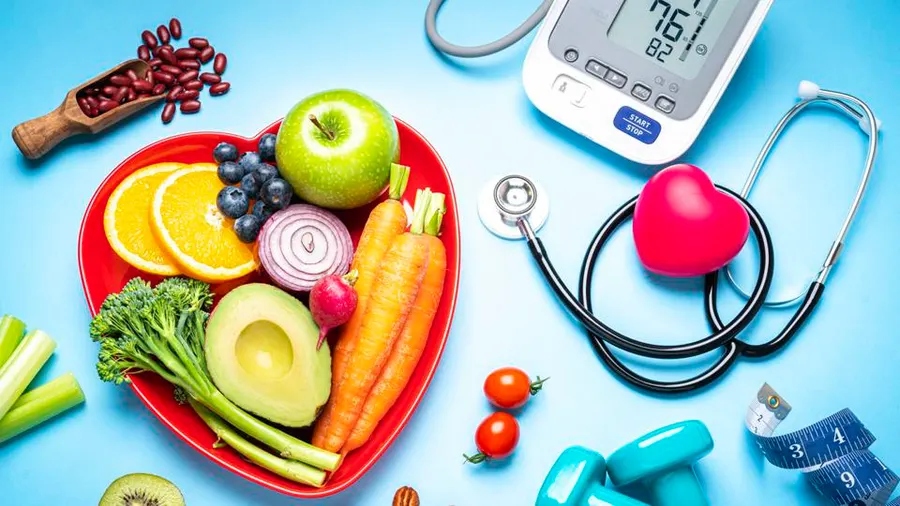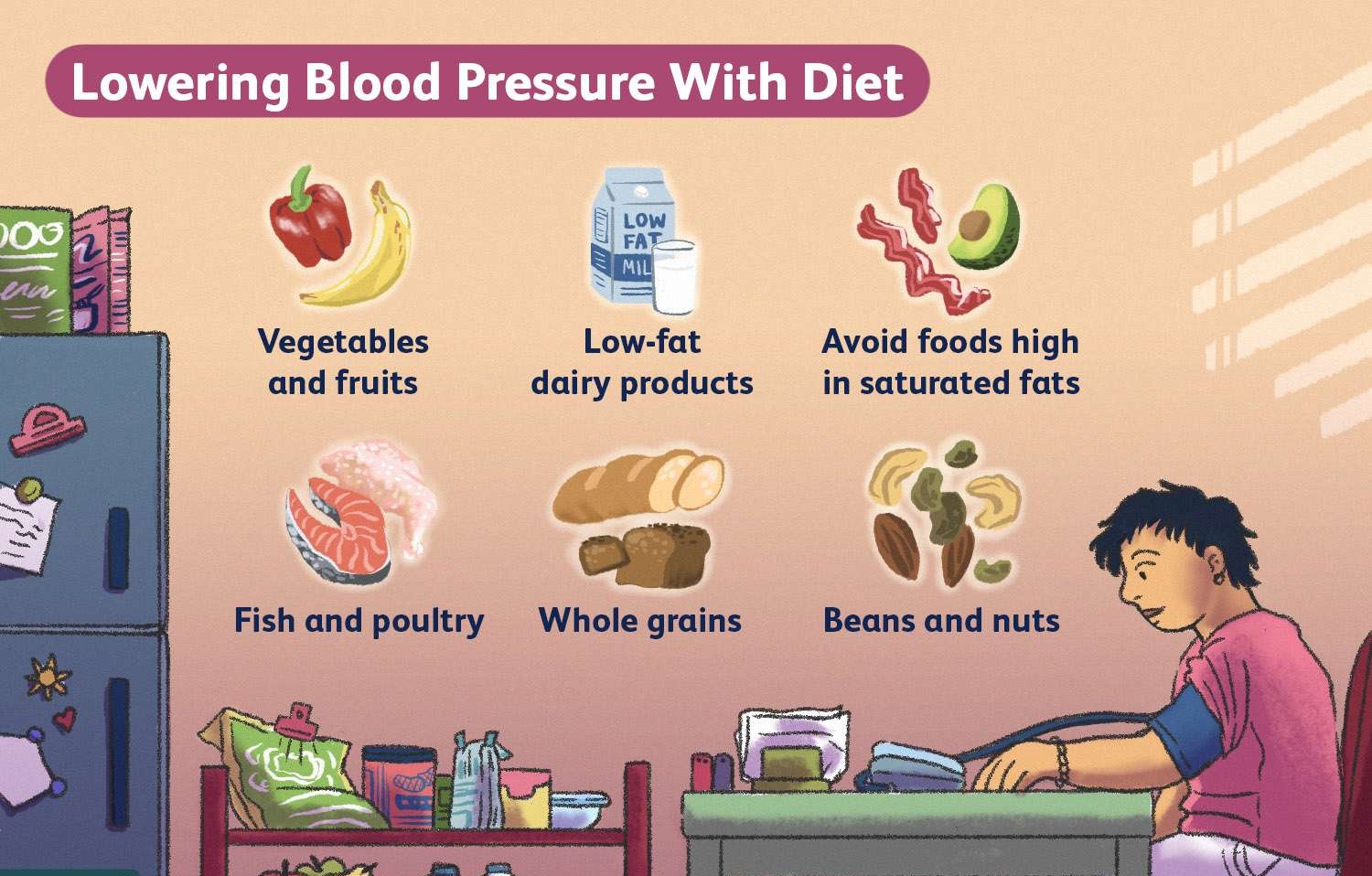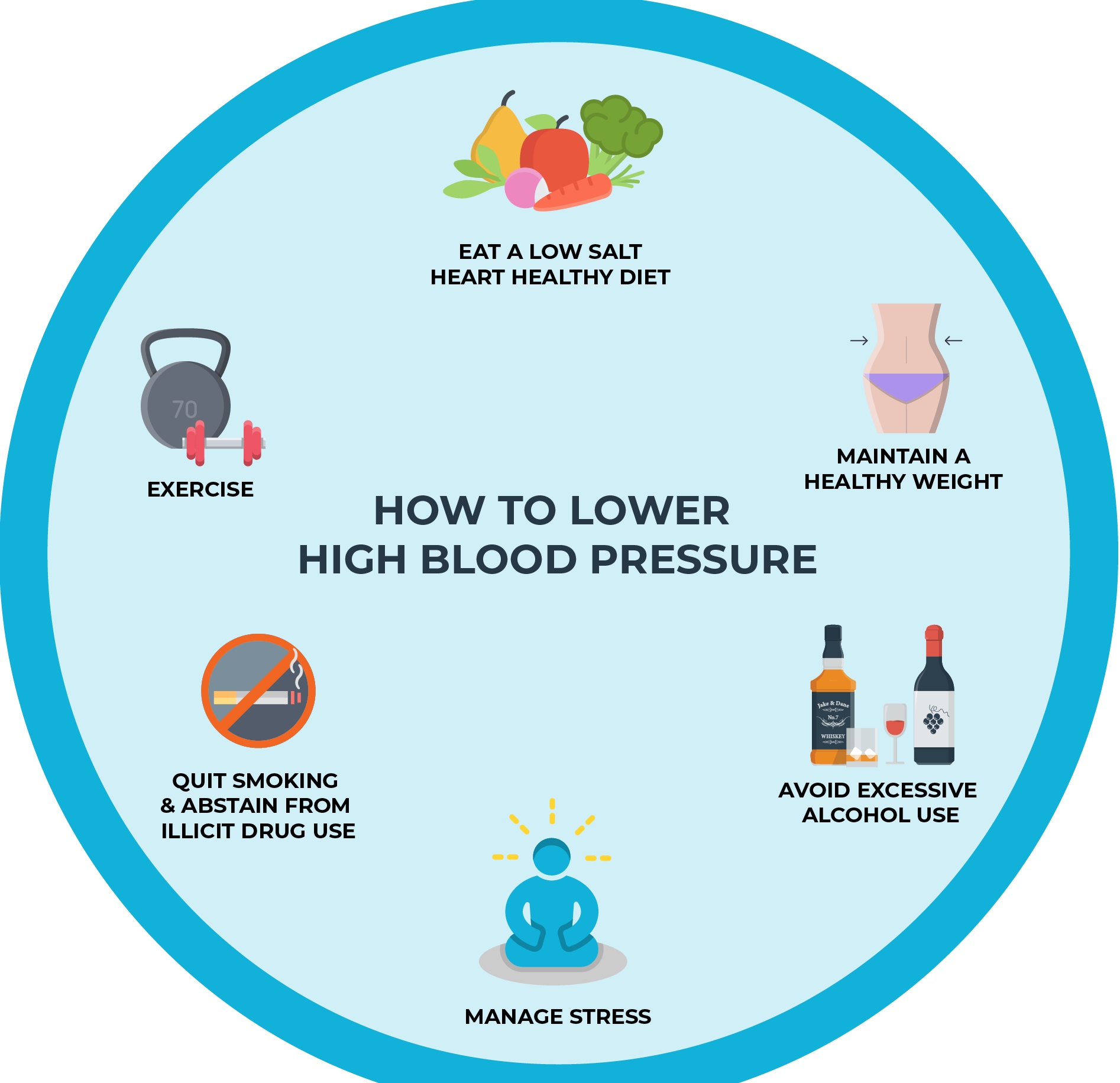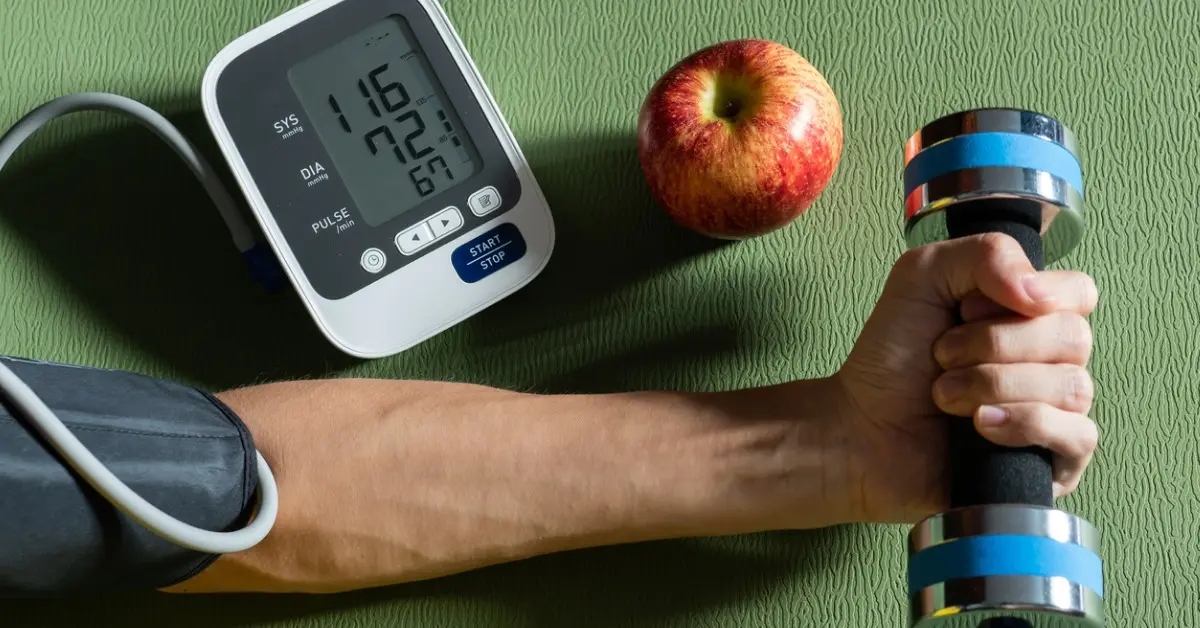How To Lower Blood Pressure? Effective Tips In 2023
Discover effective strategies on how to lower blood pressure naturally. Explore dietary approaches, exercise regimens, stress management techniques, and more for a healthier cardiovascular system. Empower yourself with lifestyle changes that contribute to optimal blood pressure levels.
Author:Karan EmeryReviewer:Katharine TateOct 03, 202320.3K Shares414.3K Views

High blood pressure, or hypertension, is a common health condition that affects millions of people worldwide. It is often referred to as a "silent killer" because it can lead to serious health issues like heart disease and stroke without showing noticeable symptoms. So, how to lower blood pressure?
The good news is that there are effective ways to lower blood pressure naturally. In this article, we will explore various strategies on how to lower blood pressure.
Healthy Eating Habits For Lowering Blood Pressure
Maintaining healthy eating habits is a cornerstone in the effort to lower blood pressure naturally. The right dietary choices can significantly impact cardiovascular health and contribute to optimal blood pressure levels.
DASH Diet For Hypertension
One of the most recommended dietary approaches for hypertension is the Dietary Approaches to Stop Hypertension (DASH) diet. Here's a breakdown of key components:
- Rich in Fruits and Vegetables -Incorporating a variety of fruits and vegetables into your diet provides essential vitamins, minerals, and antioxidants. These nutrients contribute to overall cardiovascular health, helping to regulate blood pressure.
- Whole Grains -Opting for whole grains instead of refined grains ensures a higher intake of fiber, which plays a crucial role in maintaining healthy blood pressure levels. Examples include whole wheat, brown rice, and quinoa.
- Lean Proteins -Choosing lean protein sources like fish, poultry, beans, and legumes instead of red meat reduces saturated fat intake. These proteins are also rich in nutrients like omega-3 fatty acids, which support heart health.
- Low-Fat Dairy -Incorporating low-fat dairy products provides calcium, potassium, and magnesium, essential minerals linked to blood pressure regulation. Examples include low-fat milk, yogurt, and cheese.
- Reduced Sodium Intake -Lowering salt consumption is vital for blood pressure management. Processed foods are often high in sodium, so opting for fresh, whole foods and using herbs and spices for flavoring can significantly reduce sodium intake.
Hydration
In addition to a DASH-style diet, proper hydration is crucial. Water helps maintain blood volume, making it easier for the heart to pump blood efficiently. Limiting the intake of sugary drinks and excessive caffeine is also advisable.
Portion Control
Controlling portion sizes is another important aspect of healthy eating. Consuming smaller, balanced meals throughout the day can help regulate blood pressure. Overeating can lead to weight gain, which is a risk factor for hypertension.
Regular Physical Activity For Lowering Blood Pressure
Physical activity is a powerful and natural way to lower and control blood pressure. Regular exercise has a positive impact on the cardiovascular system, promoting heart health and overall well-being.
Best Exercises For Reducing Blood Pressure
- Aerobic Exercise -Activities that get your heart pumping, such as brisk walking, jogging, cycling, and swimming, are excellent for cardiovascular health. Aim for at least 150 minutes of moderate-intensity aerobic exercise per week.
- Strength Training -Incorporating strength training exercises at least two days a week can improve overall fitness. Building muscle can contribute to better metabolism and weight management.
- Flexibility and Balance Exercises -Practices like yoga and tai chi not only enhance flexibility and balance but also have a positive impact on stress reduction, which is beneficial for blood pressure control.
Exercise Intensity And Duration
Understanding the appropriate intensity and duration of exercise is crucial. It's recommended to start gradually, especially if you're new to exercise, and gradually increase intensity over time. Consistency is key, regular, sustained physical activity provides the most significant benefits.
Lifestyle Integration
Finding ways to integrate physical activity into daily life is essential. This can include taking the stairs instead of the elevator, walking or cycling instead of driving for short distances, and incorporating physical activities into leisure time.
Maintain A Healthy Weight For Blood Pressure Management
Maintaining a healthy weight is a crucial factor in the endeavor to lower blood pressure naturally. Excess body weight, especially around the abdominal area, is closely linked to hypertension. Here's a detailed exploration of the relationship between weight management and blood pressure.
Impact Of Weight Loss On Blood Pressure
- Body Mass Index (BMI) -BMI is a measure of body fat based on height and weight. Maintaining a BMI within the recommended range is associated with a lower risk of high blood pressure.
- Obesity and Hypertension -Excess weight, particularly obesity, increases the workload on the heart. The heart has to pump more blood to supply oxygen and nutrients to larger body tissues, leading to elevated blood pressure.
Strategies For Achieving And Maintaining A Healthy Weight
- Balanced Diet -Adopting a balanced and nutritious diet is essential for weight management. Focus on whole foods, including fruits, vegetables, lean proteins, and whole grains, while limiting the intake of processed and high-calorie foods.
- Calorie Control -Monitoring calorie intake is crucial for weight maintenance. Consuming more calories than the body needs leads to weight gain, while a calorie deficit results in weight loss. Finding the right balance is key.
- Regular Physical Activity -Exercise is a cornerstone of weight management. Combining aerobic activities like walking, running, or cycling with strength training exercises helps burn calories and build lean muscle mass.
- Portion Control -Be mindful of portion sizes to avoid overeating. Smaller, more frequent meals can help regulate metabolism and prevent excessive calorie consumption.
- Hydration -Drinking an adequate amount of water is essential for overall health and can contribute to a feeling of fullness, preventing overeating.
Long-Term Benefits Of Weight Management
- Blood Pressure Reduction- Achieving and maintaining a healthy weight has a direct impact on blood pressure. Even modest weight loss can lead to significant improvements in blood pressure levels.
- Reduced Risk of Cardiovascular Disease -Weight management is not only about blood pressure; it also lowers the risk of other cardiovascular diseases, including heart disease and stroke.
- Improved Overall Health -Maintaining a healthy weight positively affects various aspects of health, including joint health, sleep quality, and overall mobility.
Manage Stress For Optimal Blood Pressure
Chronic stress is a significant contributor to high blood pressure. Stress activates the "fight or flight" response, leading to the release of stress hormones like cortisol and adrenaline. Over time, persistent stress can contribute to sustained high blood pressure. Here's a detailed look at how managing stress plays a crucial role in blood pressure control.
Understanding Stress And Its Impact
- Sympathetic Nervous System Activation -Stress triggers the activation of the sympathetic nervous system, leading to an increase in heart rate and blood pressure.
- Long-Term Effects -Chronic stress can contribute to unhealthy coping mechanisms, such as overeating, smoking, or excessive alcohol consumption, which further elevate the risk of hypertension.
How To Reduce Stress For Better Blood Pressure?
- Mindfulness Meditation -Mindfulness practices, including meditation and deep breathing exercises, are effective in reducing stress. These techniques promote relaxation and have a positive impact on blood pressure.
- Regular Exercise -Physical activity is not only beneficial for weight management but also an excellent stress reliever. Engaging in regular exercise helps release endorphins, which are natural mood enhancers.
- Healthy Work-Life Balance -Balancing work, personal life, and leisure activities is crucial for stress management. Setting boundaries and prioritizing self-care can contribute to overall well-being.
- Social Support -Having a strong support system of friends and family can help alleviate stress. Talking about concerns and seeking emotional support is an essential aspect of stress management.
- Hobbies and Leisure Activities- Engaging in hobbies and activities that bring joy and relaxation is vital. Whether it's reading, gardening, or artistic pursuits, taking time for oneself contributes to stress reduction.
The Mind-Body Connection
- Impact on Blood Pressure -The mind and body are interconnected, and mental well-being directly influences physical health. By managing stress, individuals can positively impact their blood pressure.
- Biofeedback and Relaxation Techniques -Biofeedback techniques, such as monitoring and controlling physiological responses like heart rate and muscle tension, can assist in stress reduction.
Long-Term Benefits Of Stress Management
- Blood Pressure Control -Effective stress management contributes to blood pressure control. Over time, individuals who practice stress reduction techniques may experience lower and more stable blood pressure levels.
- Enhanced Overall Health -Stress management is associated with a myriad of health benefits, including improved immune function, better sleep, and a reduced risk of mental health issues.
Limit Alcohol Consumption For Better Blood Pressure
Excessive alcohol consumption is closely linked to elevated blood pressure, and limiting alcohol intake is a crucial component of a strategy to naturally lower blood pressure. Here's an in-depth exploration of how alcohol affects blood pressure and the steps one can take to moderate its consumption.
Alcohol And Its Effects On Hypertension
- Blood Pressure Elevation -Regular and heavy alcohol consumption can lead to a persistent increase in blood pressure. This is due to the impact of alcohol on the cardiovascular system, including the heart and blood vessels.
- Sodium Retention -Alcohol can contribute to sodium retention, which in turn increases fluid volume and puts additional strain on the heart, leading to elevated blood pressure.
Guidelines For Alcohol Consumption
- Moderation is Key -Moderation is the key to enjoying the potential cardiovascular benefits of alcohol without negatively affecting blood pressure. For most adults, moderate drinking is defined as up to one drink per day for women and up to two drinks per day for men.
- What Constitutes a Drink? -A standard drink is generally considered to be 14 grams of pure alcohol, equivalent to approximately 5 ounces of wine, 12 ounces of beer, or 1.5 ounces of distilled spirits.
Health Benefits Of Moderate Alcohol Consumption
- Cardiovascular Benefits- Some studies suggest that moderate alcohol consumption may have certain cardiovascular benefits, including a potential increase in high-density lipoprotein (HDL) cholesterol, often referred to as "good" cholesterol.
- Antioxidant Properties -Certain alcoholic beverages, such as red wine, contain antioxidants like resveratrol, which may have protective effects on the cardiovascular system.
Risks Of Excessive Drinking
- High Blood Pressure -Chronic heavy drinking is a well-established risk factor for hypertension. Over time, it can lead to persistent high blood pressure, increasing the risk of heart disease and stroke.
- Heart Damage -Excessive alcohol intake can directly damage the heart muscle, leading to conditions like cardiomyopathy.
Steps To Limit Alcohol Consumption
- Set Personal Limits -Establishing personal limits for alcohol consumption is crucial. Understand what constitutes moderate drinking and stick to these limits.
- Stay Hydrated -Alternating alcoholic beverages with water can help maintain hydration and reduce the overall volume of alcohol consumed.
- Choose Low-Alcohol Options -Opt for beverages with lower alcohol content, and consider diluting drinks with mixers or water.
Quit Smoking To Improve Blood Pressure And Overall Health
Smoking is a major contributor to high blood pressure and a host of other cardiovascular problems. Quitting smoking is one of the most impactful lifestyle changes individuals can make to improve their overall health and lower blood pressure.
How Smoking Impacts Blood Pressure?
- Nicotine's Effect -Nicotine, a key component of tobacco, is a stimulant that temporarily raises heart rate and blood pressure.
- Blood Vessel Constriction -Smoking causes blood vessels to constrict, reducing blood flow and increasing the workload on the heart.
Benefits Of Quitting Smoking
- Blood Pressure Reduction -Within hours of quitting, blood pressure begins to drop. Over time, the risk of heart disease and stroke associated with high blood pressure also decreases.
- Improved Cardiovascular Health -Quitting smoking contributes to overall cardiovascular health. It reduces the risk of coronary artery disease, heart attacks, and other cardiovascular complications.
- Reduced Inflammation -Smoking contributes to inflammation in the body, a factor that can adversely affect blood vessels. Quitting smoking helps reduce inflammation, promoting better vascular health.
Challenges And Strategies For Quitting Smoking
- Nicotine Replacement Therapy -Nicotine replacement therapies, such as patches, gum, or lozenges, can help manage withdrawal symptoms.
- Behavioral Support -Counseling and support groups provide valuable assistance to individuals trying to quit smoking. Addressing the behavioral aspects of smoking is crucial for long-term success.
- Prescription Medications -In some cases, healthcare professionals may prescribe medications to assist with smoking cessation.
- Lifestyle Changes -Adopting a healthy lifestyle, including regular exercise and stress management, can support the process of quitting smoking.
Monitor Blood Pressure Regularly For Proactive Health Management
Regular monitoring of blood pressure is a proactive approach to health management, allowing individuals to track changes, identify patterns, and take timely action. Monitoring is especially crucial for those with hypertension and those working to lower their blood pressure naturally.
Benefits Of Regular Blood Pressure Monitoring
- Early Detection of Changes -Regular monitoring enables the early detection of changes in blood pressure. This allows for prompt intervention and adjustment of lifestyle strategies.
- Treatment Adjustment -For individuals on blood pressure medications, regular monitoring helps healthcare professionals adjust dosage or treatment plans as needed.
- Empowerment and Accountability -Monitoring empowers individuals to take an active role in their health. It provides a sense of accountability and motivation for maintaining healthy habits.
Choosing A Blood Pressure Monitor
- Home Monitors -Home blood pressure monitors are widely available and easy to use. They allow for regular monitoring in a comfortable and familiar environment.
- Automatic vs. Manual Monitors -Automatic monitors are convenient and easy to use, while manual monitors may require a bit more skill but offer precision.
- Cuff Size -Using the right-sized cuff is essential for accurate readings. Most home monitors come with adjustable cuffs to accommodate different arm sizes.
Monitoring Guidelines
- Consistency is Key -To get an accurate picture of blood pressure trends, monitor consistently at the same time each day.
- Record Readings- Keep a log of blood pressure readings, noting the date, time, and any relevant lifestyle factors, such as recent physical activity or changes in medication.
- Share with Healthcare Professionals -Regularly share blood pressure readings with healthcare professionals during check-ups. This information helps them make informed decisions about treatment plans.
FAQs
How Do I Lower Blood Pressure Quickly?
- Bathe or shower in warm water. Enjoy the warm water in your shower or bath for at least 15 minutes.
- Perform a breathing exercise. Take a deep inhale from your center, hold it for two seconds, and then gently release.
- Relax!
Does Drinking Water Lower Blood Pressure?
Water can help normalize your blood pressure but does not necessarily lower it unless you are dehydrated.
Can You Lower Blood Pressure Without Medication?
Yes, it's possible to lower blood pressure naturally through lifestyle changes, including dietary modifications, regular exercise, stress management, and reducing sodium intake.
What Foods Can Help Lower Blood Pressure?
Foods that can help lower blood pressure include fruits, vegetables, whole grains, lean proteins, and low-fat dairy products. These are key components of the DASH diet.
How Much Exercise Do I Need To Help Lower Blood Pressure?
Aim for at least 150 minutes of moderate-intensity aerobic exercise, such as brisk walking or cycling, per week to help lower and maintain healthy blood pressure levels.
What Is The First Aid Of High Blood Pressure?
Breathe slowly and deeply through your nose, then exhale through your mouth. By lowering stress and tension, this can help reduce blood pressure.
Is Alcohol Consumption Linked To High Blood Pressure?
Excessive alcohol consumption can raise blood pressure. It's recommended to limit alcohol intake to moderate levels to maintain healthy blood pressure.
Conclusion
How to lower blood pressure naturally? Lowering blood pressure naturally involves adopting a holistic approach that encompasses dietary choices, physical activity, stress management, and healthy lifestyle habits.
While these strategies are effective, it's crucial to work closely with healthcare professionals to tailor a plan that meets your individual needs. By making these positive changes, you can take control of your blood pressure and reduce the risk of associated health complications. Remember, small, consistent steps lead to significant improvements in long-term cardiovascular health.
Jump to
Healthy Eating Habits For Lowering Blood Pressure
Regular Physical Activity For Lowering Blood Pressure
Maintain A Healthy Weight For Blood Pressure Management
Manage Stress For Optimal Blood Pressure
Limit Alcohol Consumption For Better Blood Pressure
Quit Smoking To Improve Blood Pressure And Overall Health
Monitor Blood Pressure Regularly For Proactive Health Management
FAQs
Conclusion

Karan Emery
Author

Katharine Tate
Reviewer
Latest Articles
Popular Articles


